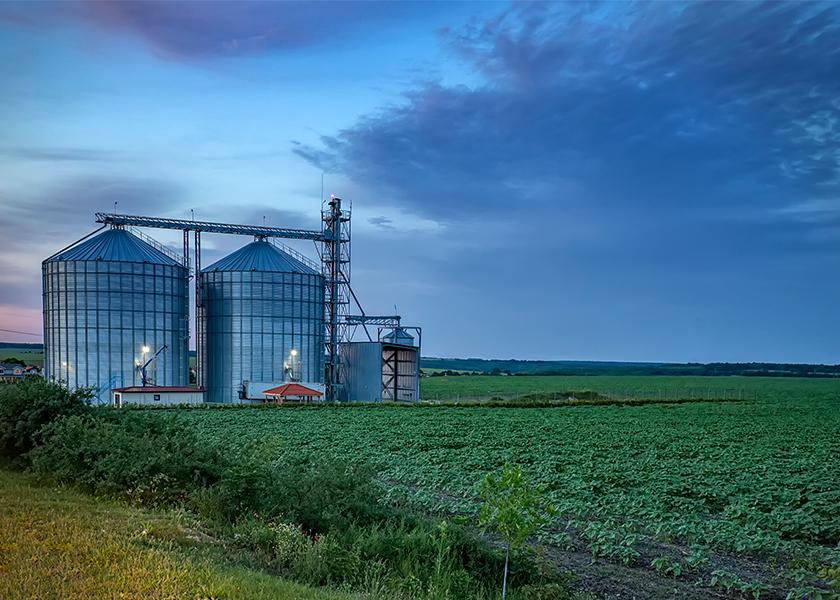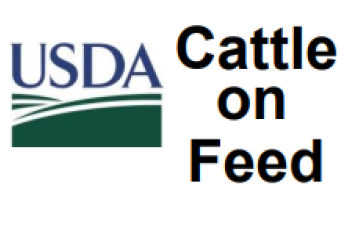Evening Report | December 14, 2022

Check our advice monitor on ProFarmer.com for updates to our marketing plan.
As expected, Fed slows pace of interest rate gains but remains committed to reducing inflation... The Federal Reserve raised interest rates by 50 basis points, ending a four-meeting string of 75-basis-point hikes. The Fed’s policy rate, which began the year at 0% to 0.25%, is now in a target range of 4.25% to 4.50%, the highest since late 2007. “The (Federal Open Market) Committee is highly attentive to inflation risks... Ongoing increases in the target range will be appropriate in order to attain a stance of monetary policy that is sufficiently restrictive to return inflation to 2% over time,” the Fed said in a statement nearly identical to the one it issued at its November meeting.
In his post-meeting press conference, Chair Jerome Powell said the Fed needs “substantially more evidence to give confidence that inflation is on a sustained downward path.” He was non-committal when asked whether the next Fed rate hike would decline to 25 basis points and said it was too soon to talk about cutting interest rates. Powell said, “Our focus right now is really on moving our policy stance to one that is restrictive enough to ensure a return of inflation to our 2% goals over time.” He noted the Fed would not consider changing its 2% inflation target “under any circumstances.”
In the updated “dot-plot” forecasts, Fed officials projected the federal funds rate will rise to 5.1% by the end of 2023. That’s up from 4.6% projected in September. The median forecasts for interest rates in 2024 and 2025 increased 0.2 point each to 4.1% and 3.1%, respectively. Inflation, based on the Personal Consumption Expenditures price index, is projected at 3.1% at the end of next year, up from a 2.8% forecast in September. The PCE index is projected to fall to 2.5% in 2024 and 2.1% in 2025. Gross domestic product is projected to grow just 0.5% next year, the same as estimated for 2022, before rising to 1.6% in 2024 and 1.8% in 2025.
China plans to expand domestic demand to spur economy... China has set out plans to expand domestic consumption and investment, the state-run Xinhua news agency reported on Wednesday, as the economy struggles with Covid and weakening external demand. Boosting domestic demand will help China to pursue higher quality economic growth and cope with external risks and challenges, Xinhua reported, citing the 2022-2035 plans issued by the cabinet.
China aims to boost the scale of consumption and investment to a new level by 2035, significantly reduce income gaps between urban and rural residents, and make substantial progress in the country's “common prosperity” drive, Xinhua said. Beijing will support citizens’ “reasonable” demand for housing and curb speculative investments, encourage the transition to electric vehicles, and boost the supply of higher quality consumer goods and of healthy farm produce, according to the plan. China will also increase consumption in the areas of culture and tourism and will reduce the financial burden for families of raising children, parenting and education, state media said. Beijing plans to step up infrastructure investment in energy, transport, logistics, water conservancy, as well as in 5G, AI, big data, and channel more funding into advanced manufacturing sectors. China will expand the scale of bond financing and promote bond market connectivity, Xinhua added.
On the agricultural side, China plans to protect grain security and increase domestic supplies.
Shippers note ‘notoriously difficult’ railroads during hearing... Shippers urged the U.S. railroad regulator to create more competition in the industry during hearings in which Union Pacific was called to explain a spike in service restrictions. Shippers used the public forum to air grievances about an industry structure they say gives railroads the power to boost prices and pad their profit even as service suffers. Companies, including Cargill Inc. and Ag Processing Inc., pointed to reduced workforces as one of the main culprits for railcar curtailments.
Lance Fritz, the chief executive officer of Union Pacific, said service has suffered because the railroad didn’t have enough train crews at the beginning of the year and has hired 1,400 train and yard workers to address the problem. As service deteriorated, customers added railcars to the network to move goods. That exacerbated the congestion and forced the railroad to use embargoes to clear out railcars from switching yards and tracks, Fritz said. “Excess freight-car inventory disrupts the alignment of our network resources,” he said. “It requires us to use more crews and more locomotives to handle the same amount of business, and it produces congestion on our lines of road and in our terminals.”
ERP payouts continue to move higher... Payments under USDA’s Emergency Relief Program (ERP) rose to $7.22 billion as of Dec.11, up from $7.20 billion the prior week. The total includes payments of $6.17 billion for non-specialty crops ($6.14 billion prior) and $1.06 billion for specialty crops ($1.04 billion prior). Payments were largely unchanged under both of the Coronavirus Food Assistance Program (CFAP) efforts.
As we reported in “First Thing Today,” the coming omnibus spending measure for fiscal year 2023 is likely to include an extension of ERP for eligible 2022 crop and livestock disasters.
South Dakota to restrict land sales to China... South Dakota Gov. Kristi Noem and two state lawmakers are proposing legislation to restrict foreign purchases of agricultural land in the state. Noem specifically mentioned China.
“With this new process, we will be able to prevent nations who hate us – like Communist China – from buying up our state’s agriculture land,” Noem said in a release. “We cannot allow the Chinese Communist Party to continue to buy up our nation’s food supply, so South Dakota will lead the charge on this vital national security issue.”
The bill would be sponsored by Sen. Erin Tobin (R-Winner) and Rep. Elect Gary Cammack (R-Union Center).
Tobin stated he wants to “protect the security of that food supply for our kids,” and Cammack stated concern about “vital national security resources like Ellsworth Air Force Base. We cannot afford for our enemies to purchase land in South Dakota.”
If approved, the state would set up a board, called the Committee on Foreign Investment in the United States – South Dakota. This board would investigate attempted land purchases by foreign interests and recommend approval or denial to the governor.
According to the governor’s release, the jurisdiction of the board would cover transactions on or after July 1, 2023, including:
- Any transaction of any number of acres – including a land transfer, purchase, grant, devise, descent, or inheritance of agricultural land – involving a “foreign entity” (any foreign person, foreign government, foreign business, or any organization controlled by a foreign person, government, or business).
- Any lease of agricultural land to a foreign entity for a period of one year or longer.
- Any transaction previously considered by the federal Committee on Federal Investment in the United States (CFIUS) board.
Sen. Booker seeks major expansion of ‘food as medicine’ programs... Congress should “substantially scale up” programs like a produce prescription and nutrition incentive program at USDA and create a food box program to provide locally grown produce to Medicaid participants, said Sen. Cory Booker (D-N.J.) on Tuesday. “Food as medicine programs can be transformative,” he said during a Senate Agriculture subcommittee hearing on the issue.
U.S. mortgage rates rise for first time in five months... The average contract interest rate for 30-year fixed-rate mortgages with conforming loan balances ($647,200 or less) in the U.S. edged up 1 basis point to 6.42% in the week ended Dec. 9, data from the Mortgage Bankers Association (MBA) showed. It was the first increase in mortgage rates in five months, although borrowing costs hold close to low levels not seen since mid-September, tracking a retreat in bond yields. In November, rates reached 7.14%, the highest since 2001.






